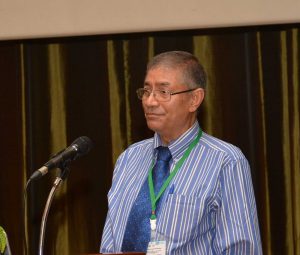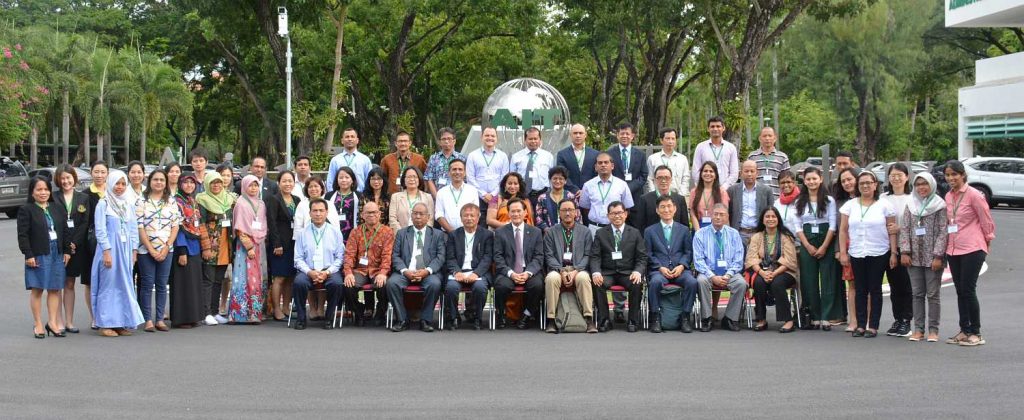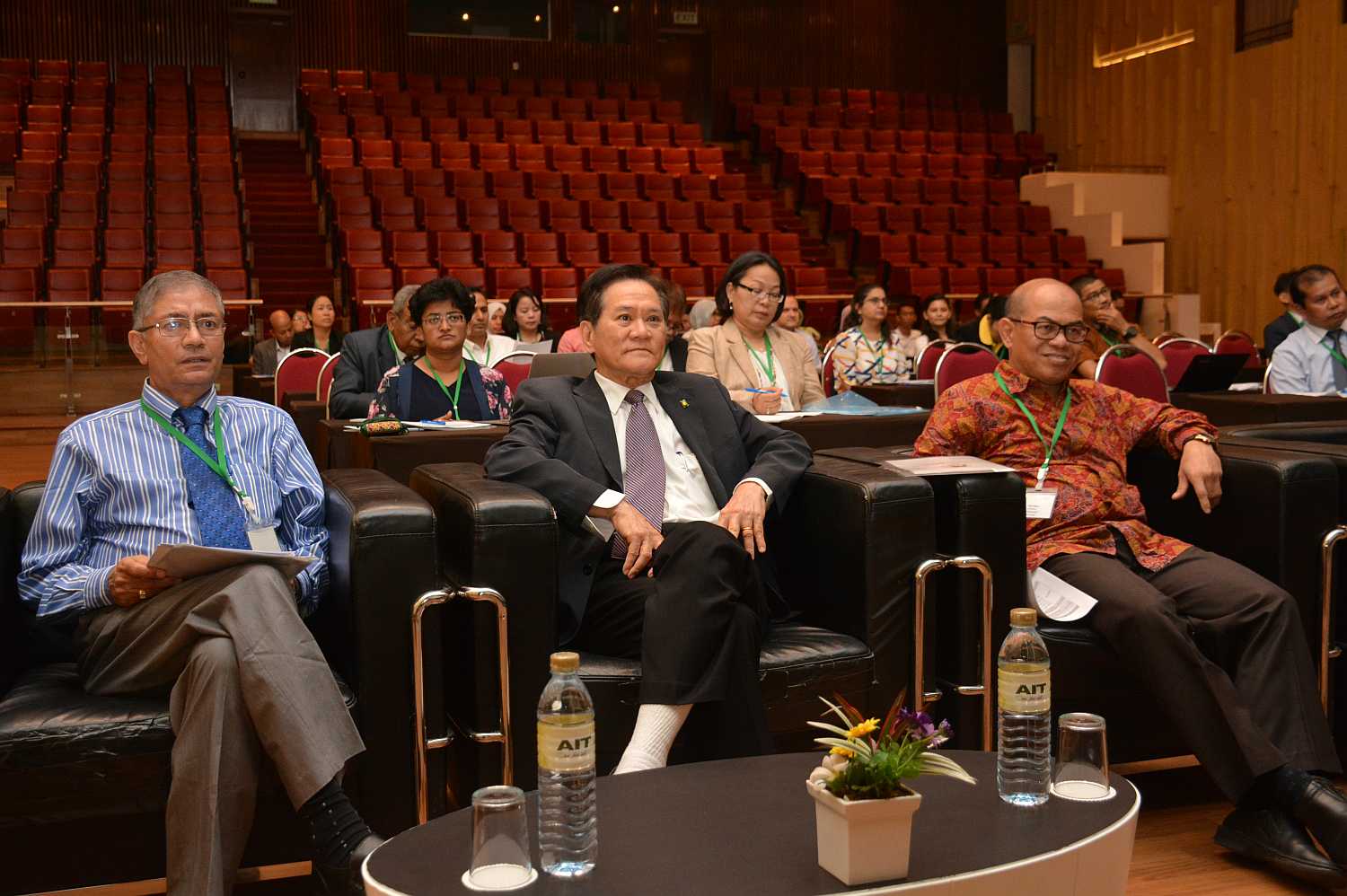
Prof. Ganesh Shivakoti at the International Association for the Study of the Commons (IASC) Asian Region Binnennia, at AIT on 13 July 2018.
The Asian Institute of Technology (AIT) hosted the International Association for the Study of the Commons (IASC) Asian Region meeting from 13-16 July 2018, where leading academics and practitioners deliberated on issues related to governance of key natural resources.
“The Asia Region biennial meeting is being held after a gap of 14 years, and after the first meeting held in Chiang Mai (Thailand) in 2004, it is AIT that is now hosting the second meeting,” said Prof. Ganesh Shivakoti, Director of the Ostrom Center for the Advanced Study of Natural Resources Governance (OCeAN), which is hosted at AIT’s School of Environment, Resources and Development. Speaking at the inaugural meeting, Prof. Shivakoti reminisced the contributions of Nobel laureate late Elinor Ostrom, after whom the OCeAN Center is named.
Welcoming the delegates was AIT President Prof. Worsak Kanok-Nukulchai, who cited the similarities between IASC and AIT. IASC works for “the commons”, and so does AIT, Prof. Worsak said. He added that AIT’s research work is targeted at “the commons” and as the institute focuses on conducting research that is beneficial to mankind.“AIT is also a unique institution in many ways and long before internationality became a buzzword, our founding fathers had fashioned AIT as an international institute for education,” Prof. Worsak said.
Three themes were the focus of the event -- climate change, natural resources dynamics and land use challenges, community irrigation and robustness challenges, and community forestry and social ecological systems.
Delivering the keynote speech, Prof. John Pulhin of the University of the Philippines at Los Banos, spoke about integrating the commons, as he delineated key challenges and opportunities of governance in a changing climate. Describing ecosystems as complex, dynamic and interacting, Prof. Pulhin stressed the importance of collaboration in a fragmented landscape.
Professor Tine De Moor of University of Utrecht, the immediate past president of IASC, and Professor Marty Anderies of Arizona State University, Center for Behavior, Institutions and the Environment (CBIE) delivered keynote speeches. Other keynote speakers included Prof PK Viswanathan of Amrita University, India; Professor Helmi of Andalas University, Indonesia; Professor Chen Haiyun of Tongji University, China; Professor Inoue Makoto of Waseda University, Japan: Professor Ambika Gautam from Tribhuvan University, Nepal; Professor Asif Kamran of Faisalabad University, Pakistan).Forty-nine thematic presentations were delivered by 78 scholars from 16 countries.
The plenary session discussed the Nepal Irrigation Institutions and Systems and the application of common pool resource research tools, and decided to test it for the Asian Irrigation Institutions and Systems. The second plenary session was focused on a Toyota funded Project on Policy-Practice gap on Triple Benefits from REDD+ Implementation Mechanism in Southeast Asian countries. Deliberations at AIT were followed by a field trip to the Tha Wang Sai Community Forest in Nakhon Ratchasima Province, Northeastern Thailand.
Besides the host AIT, key institutions that participated in the IASC meet included Waseda University University from Japan, Tongji University in China, Seoul National University in Korea, University of Nottingham-Malaysia Campus, University of the Philippines, Amrita University in India, National University of Singapore, Andalas and Mulawarman University in Indonesia, Tribhuvan University in Nepal, Hue University of Agriculture and Forestry in Hue, Viet Nam; Center for Behavior, Institutions and the Environment (CBIE) of Arizona State University, USA, Chiang Mai University, Kasetsart University and Prince of Songkla University in Thailand, University of Faisalabad in Pakistan, and Ministry of Agriculture and Cooperatives of Thailand.

International Association for the Study of the Commons (IASC) Asian Region Binnennial from 13-16 July 2018 at the Asian Institute of Technology (AIT).

